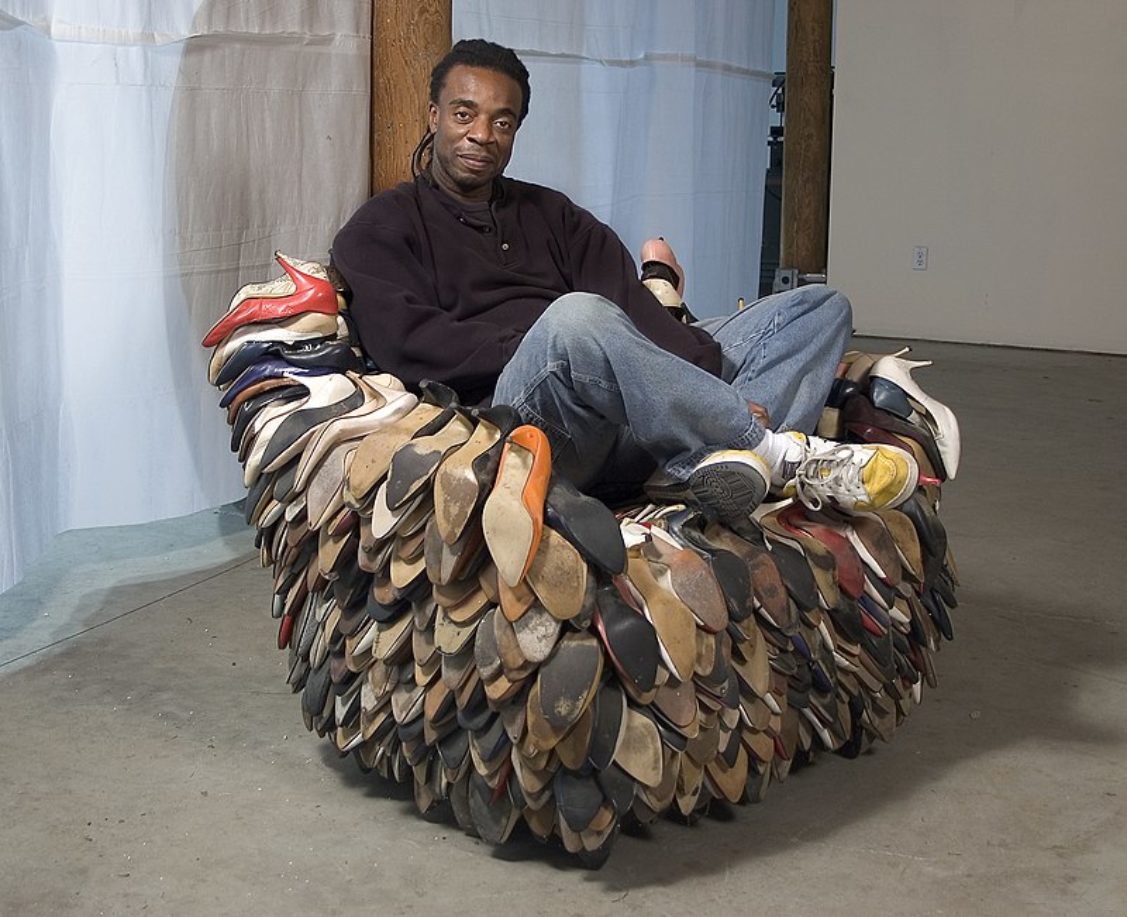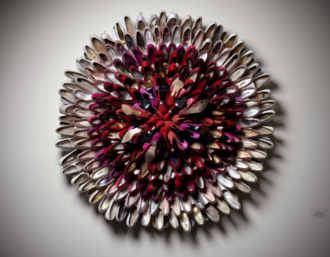Cole is best known for assembling and transforming ordinary domestic and used objects such as irons, ironing boards, high-heeled shoes, hair dryers, bicycle parts, wooden matches, lawn jockeys, and other discarded appliances and hardware, into imaginative and powerful works of art and installations.
In 1989, Cole garnered attention in the art world with works using the steam iron as a motif. Cole imprinted iron scorch marks on a variety of media, showing not only their wide-ranging decorative potential but also to reference his Cole’s African-American heritage. He used the marks to suggest the transport and branding of slaves, the domestic role of black women, and ties to Ghanaian cloth design and Yoruba gods.
Through the repetitive use of single objects in multiples, Cole’s assembled sculptures acquire a transcending and renewed metaphorical meaning, or become a critique of our consumer culture. Cole’s work is generally discussed in the context of postmodern eclecticism, combining references and appropriation ranging from African and African-American imagery, to Dada’s readymades and Surrealism’s transformed objects, and icons of American pop culture or African and Asian masks, into highly original and witty assemblages. Some of Cole’s interactive installations also draw on simple game board structures that include the element of chance while physically engaging the viewer.
Willie Cole grew up in Newark, New Jersey. He attended the Boston University School of Fine Arts, received his Bachelor of Fine Arts degree from the School of Visual Arts in New York in 1976, and continued his studies at the Art Students League of New York from 1976 to 1979.
Willie Cole is the recipient of many awards, including the 2006 David C. Driskell Prize, the first national award to honor and celebrate contributions to the field of African-American art and art history, established by the High Museum of Art in Atlanta, Georgia. Cole is represented by Alexander and Bonin Gallery in New York; and by Guido Maus, beta pictoris gallery/Maus Contemporary in Birmingham, AL.

